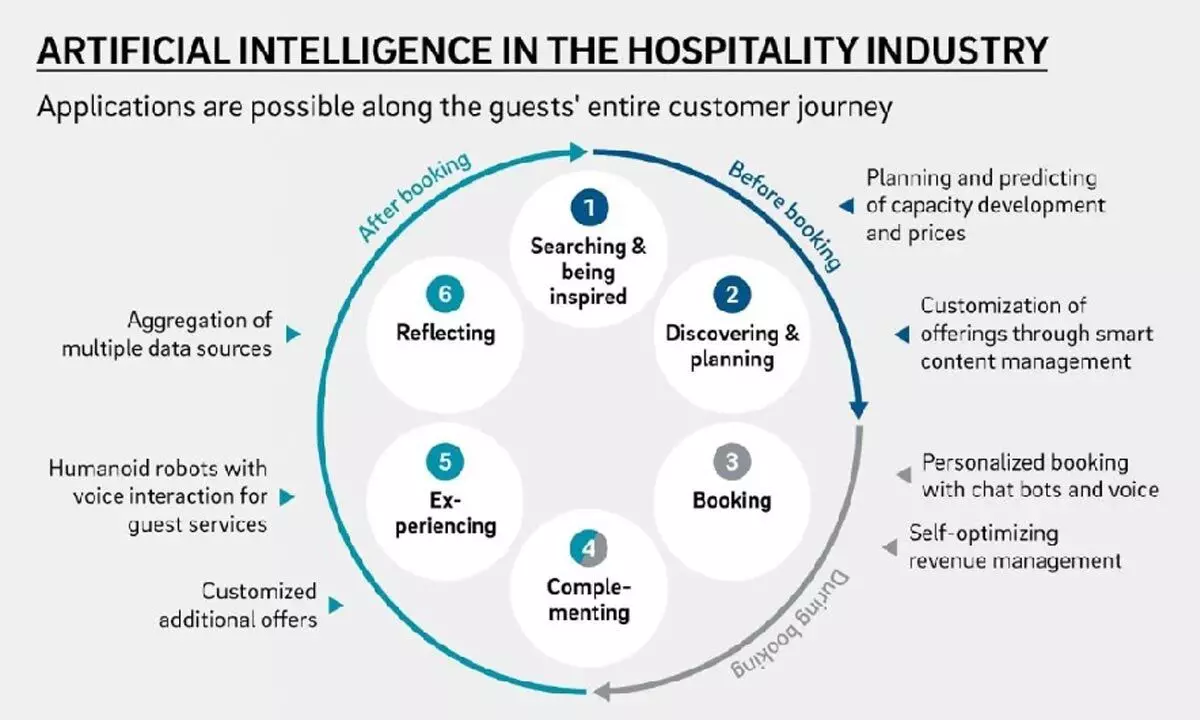AI progression has been systematic in the hotel industry
Heavy patronization of voice-based digital assistance
image for illustrative purpose

Artificial intelligence has advanced to the point where it is regularly used to assist and communicate with customers, ‘learning’ from each of these interactions and improving future interactions. Moreover, AI can assist with tasks like data analysis, calculations, and problem-solving, which can be valuable to hotel owners.
The role of artificial intelligence within the business world has increased dramatically over the past decade, and the last few years, in particular, have seen much more widespread adoption in the travel industry.
For hotels and other businesses in the tourism industry, one of the most exciting uses for artificial intelligence is assisting customers online. In particular, there has already been widespread adoption for the purposes of powering chatbots on social media platforms, as well as instant messaging apps.
Used in this way, AI can respond to questions and provide valuable information to customers, even when a customer service rep is not available. Customers demand faster and faster response times on online platforms, and artificial intelligence allows businesses to deliver times that would be impossible for humans.
While the use of artificial intelligence for powering online customer service is now relatively commonplace, one of the emerging trends is for the technology that can be used for face-to-face customer service interactions. This can cut queues at information or reception desks and improve overall efficiency.
Finally, it is important to understand that the applications of AI within the travel and tourism industry are not limited to customer service alone. One of its most popular and effective uses is for gathering and interpreting data to draw conclusions about customers, business practices, and pricing strategies.
An emerging use for artificial intelligence in the travel and tourism industry involves providing voice-based digital assistance, which can take many forms. For instance, it is now possible to provide voice assistants within hotel rooms, allowing guests to ask questions or make requests and receive immediate responses.
Voice recognition technology opens up the potential for voice-activated room controls and instant 24/7 access to tourist information. Robots could also provide voice-based digital assistance, meaning that customer service desks can be left without human staff members, especially outside of peak times.
The use of AI within the travel and tourism industry is also increasingly influencing flight forecasting. This discipline relies on currently available data and historical flight data. Artificial intelligence can be invaluable when analyzing vast quantities of data and identifying relevant trends.
Drawing from this data, AI-powered software can use weather patterns, past flight times, and trends related to flight speed to accurately forecast when flights will arrive and how long delays are likely to last. As a result, those using the software can benefit from access to more reliable and accurate projections.
Many businesses within travel and tourism operate with a flexible pricing model based on the levels of demand being experienced and the level of availability. This applies to hotels, airlines, and various other business types, and AI within the travel and tourism industry can play an important role in optimizing such a strategy.
With AI’s ability to quickly organize and analyze data, it becomes significantly easier to adjust pricing intelligently and ensure that the level set makes sense. During times of high demand, pricing can typically be set higher than during times of low demand, but there are other factors that AI can utilize to make intelligent calculations.
The use of artificial intelligence within the travel and tourism industry also extends to baggage handling and security. AI can be used to sort baggage more efficiently, reducing errors like loss of baggage. On top of this, AI can help to sort unclaimed, misplaced, or lost baggage.
AI technology can also be deployed for security. For example, when airport security systems scan luggage, AI can automatically scan images and detect possible items of interest. An alert system can then be set up, attracting the attention of security staff if something suspicious is found.
Forecasting is one of the single biggest uses of artificial intelligence within the travel and tourism industry, and this can potentially be used to reduce travel disruption significantly and manage any issues that arise.
Revenue management is the process of selling the right product, to the right customer, at the right time, for the best price and in the most efficient manner. It is a data-driven discipline, which is why artificial intelligence can be beneficial, helping those in the travel and tourism industry to maximize their earnings.

